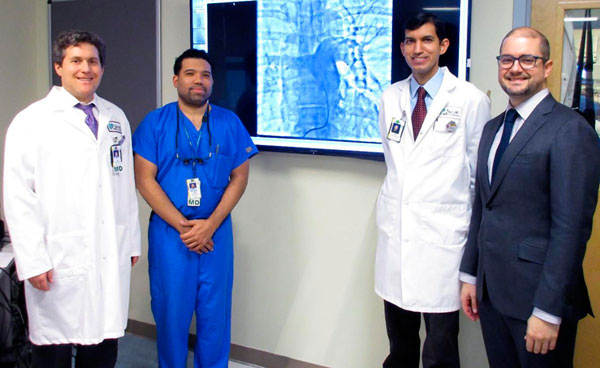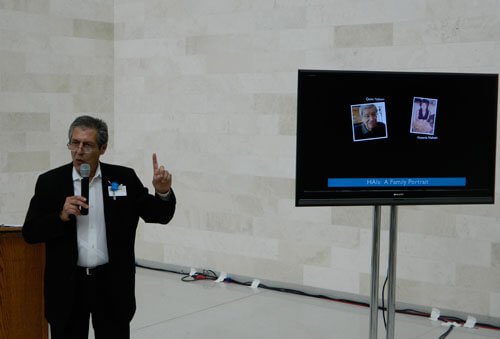Jacobi Medical Center is pioneering a new method for treating pulmonary embolisms that is a first for the borough.
The hospitals’ Pulmonary Embolism Response Team, established over six months ago, makes Jacobi the first borough hospital to incorporate a new team-based method for treating pulmonary embolisms.
The method was first piloted in 2012 at Massachusetts General Hospital.
PERT utilizes teamwork among doctors in dealing with pulmonary embolisms, which are blockages of lung arteries that can lead to organ damage. The goal is to bring about earlier diagnosis and treatment, said team members.
“It is a multi-disciplinary approach that happens in real time,” said a Jacobi spokesman, adding the hospital’s was the first PERT in the borough.
The Jacobi PERT team includes a vascular surgeon, an interventional cardiologist, a pulmonologist, and emergency medicine and critical care personnel, according to team members.
Dr. Seth Sokol, chief of cardiology said that once a patient is identified as having a pulmonary embolism, PERT members review the data on the patient 24- hours-a-day and seven-days-a-week, wherever the team members are.
“One of the team members from the critical care department is always in the hospital,” said Dr. Matthew Langston, director of the medical and intensive care unit and a team member.
When a patient is identified and recommended to the PERT team, the members of the group have a conference call or a meeting no matter the hour and review data, said Sokol. A course of treatment is then planned.
PERT is designed to identify patients that rapidly that need stepped up treatment, explained team members.
“The purpose of PERT is to evaluate every patient that comes in and decide whether they are a patient that is at high risk for bad outcomes,” said Sokol. “To do that, it really takes a multi-disciplinary team.”
In the past, patients were given blood thinners, and different medical departments and disciplines were consulted as needed, but patient outcomes could vary, according to the doctors.
So far, PERT has helped over 20 patients in terms of identifying and treating pulmonary embolus using new protocols developed in the Jacobi Department of Cardiology that more effectively treat the potentially fatal condition, according to a hospital spokesman.
One of the patients who has benefitted from PERT is Ingrid Morrision of Williamsbridge, who said that the team was able to quickly find two large blood clots so that she could be treated quickly.
“The doctors did not leave me alone – they were constantly there in my room,” said Morrision, adding “they monitored me 24/7.”
Morrision said that the PERT and the cardiac unit at Jacobi left no stone unturned, and are the reason she came through the ordeal.























